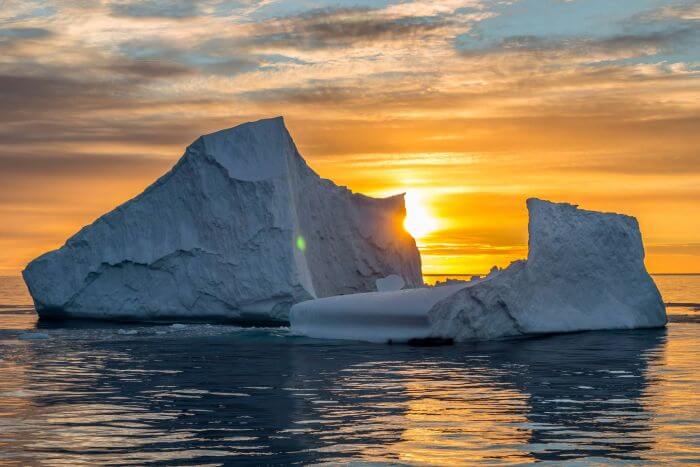Lead institution:
Akvaplan-niva – Norway
The Antarctic Ice Sheet (AIS) stores a large amount of freshwater. If melted completely, it would contribute 58 m to global mean sea level rise. According to IPCC AR6, a rise of up to 5 m by 2150 cannot be ruled out under a highemission scenario due to the large uncertainty related to AIS processes. Such a strong increase in sea level would be catastrophic for many low-lying regions worldwide, but how likely is it?
The AIS gains mass mainly through snow accumulation and loses mass through iceberg calving and ocean-induced basal melting of its floating parts. Future projections of AIS mass balance are based on ice sheet model simulations forced by climate model outputs. Climate models can properly project large-scale climate changes but struggle to represent small-scale coastal processes that bring heat to the ice sheet margins. This leads to poor representation of basal melting and thus substantial uncertainties in projections of Antarctica’s contribution to sea level rise. Climate models also suggest compensating mass change under climate warming in Dronning Maud Land: increased basal melting and more snowfall.
This project brings together glaciology and oceanography, sophisticated numerical modelling and statistical analysis techniques to address these two key uncertainties of sea level rise projections:
- Our combined approach of ocean model downscaling and statistical emulation enables us to assess future ocean induced AIS mass loss more accurately and thus reduce uncertainties in its contribution to sea level rise
- Our regional fine-resolution coupled ice sheet-ocean model enables us to provide improved projections for ice mass balance and ice sheet movement in the Norwegian administrated Dronning Maud Land sector of Antarctica
Our project outcomes will directly contribute to future assessments of ice sheet sea-level contributions and address two of the goals of the Ocean Decade: a predicted ocean and an accessible ocean.
Start Date: 01/01/2024
End Date: 31/12/2027
Lead Contact: Qin Zhou (qin@akvaplan.niva.no)
